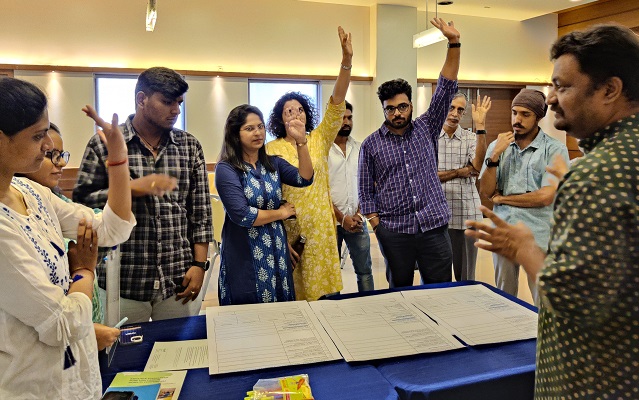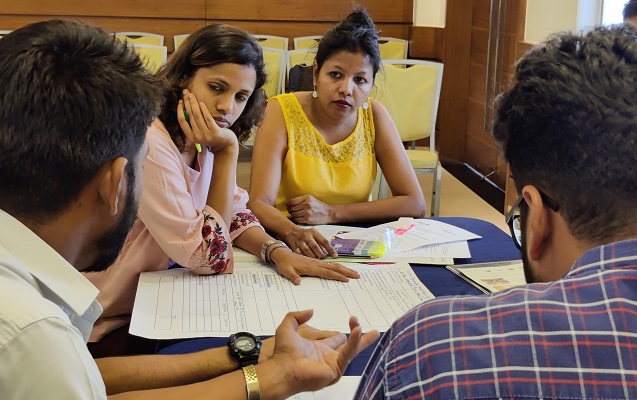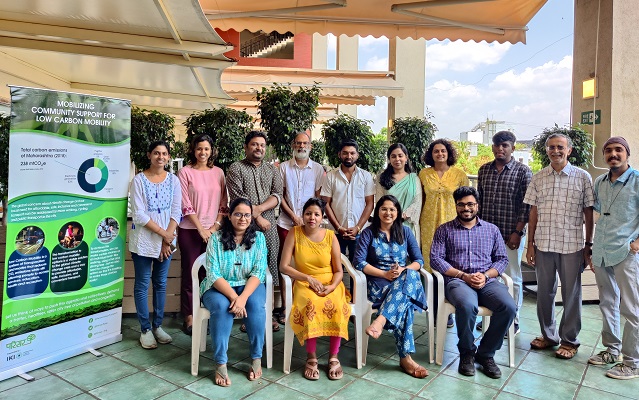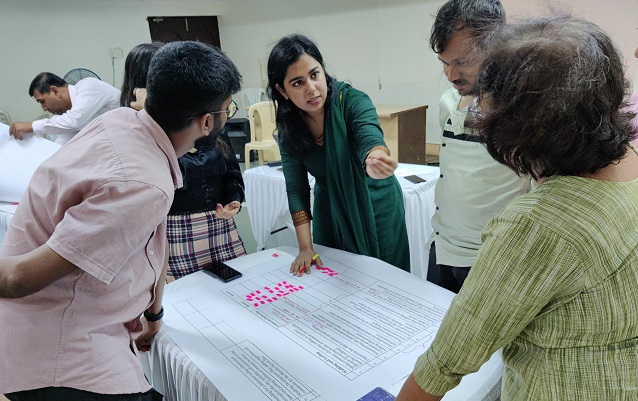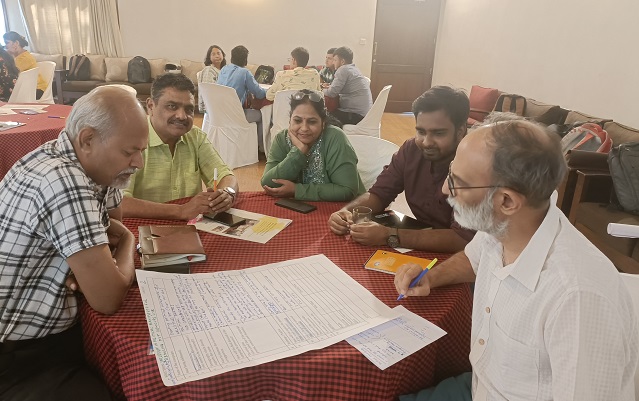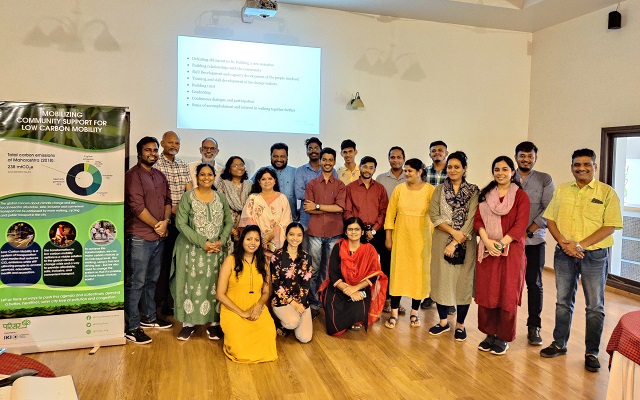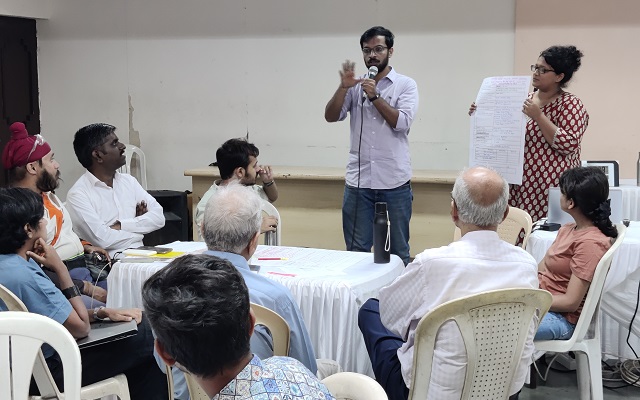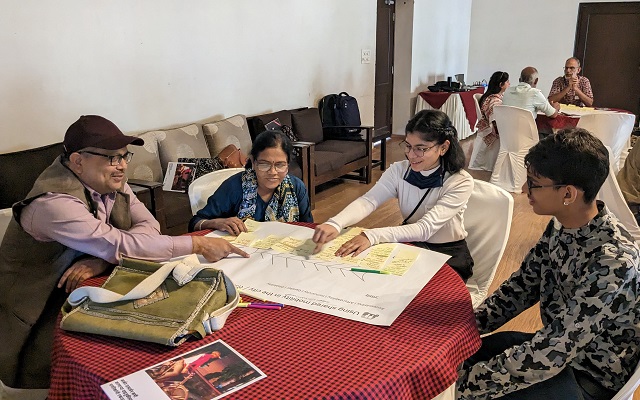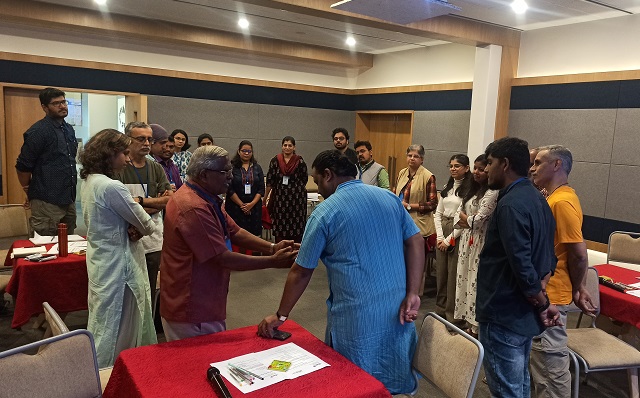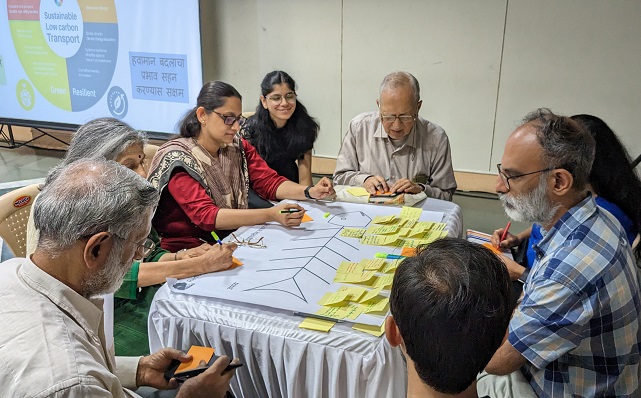Mobilizing community support for low carbon mobility in Maharashtra’s cities
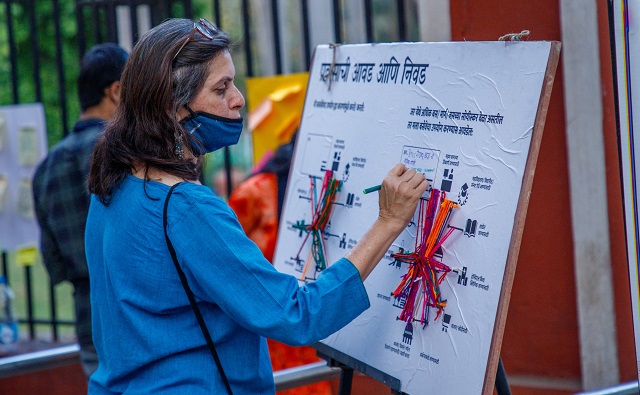
A shift to low carbon mobility in Indian cities is urgently needed to tackle air pollution, greenhouse gas emissions and social inequality in the mobility sector. This IKI Small Grants project mobilizes support for low carbon mobility initiatives in Maharashtra state. It mobilizes civil society networks and sets up city-specific lists of low carbon mobility initiatives. These compendia are utilized to widen civil society engagement. Through advocacy action plans they are supported in raising demands for low carbon initiatives to the respective municipal authorities. Examples for such initiatives to be advocated for are public bike share systems, low carbon city bus systems, or pedestrian-friendly neighbourhoods.
INITIAL SITUATION
The IKI Small Grants project is initiated with the belief that a successful shift to low carbon mobility in cities requires greater engagement and demand from a wide section of civil society. India has already implemented policies and initiatives at national level such as Promoting Low Carbon Mobility and the Climate Smart Cities Assessment Framework, however, at the city-level climate concerns are not the drivers of solutions. Since urban transport is a state subject, projects and budget allocations are driven locally. Unless there is vocal and demonstrable support for low carbon mobility initiatives from the grassroot-level, the political economy is likely to pursue vehicle-centric solutions, rapidly increasing urban transport emissions.
TARGET GROUP
This project targets civil society organizations, including non-governmental organisations (NGOs), trade unions, and professional associations that work in the climate change or transport sector. The project aims to engage them in the conversation about climate change and the need for cities to adopt low carbon mobility solutions. This will not only contribute to greenhouse gas emissions mitigation, but it will also help to improve access to and affordability of mobility for the people represented by those organizations. Since urban transport involves all city residents, the project categorizes all urban residents as beneficiaries.
VIDEOS FROM THE PROJECT
APPROACH AND ACTIVITIES
The project seeks to mobilize support for low carbon mobility by conducting city-specific discussions, widening engagement with civil society, and supporting local advocacy efforts.
To do so, the project sets up three city compendia through stakeholder consultations with local civil society networks. A compendium is a list of low carbon mobility initiatives that are relevant to a particular city. The set-up of city-specific compendia allows targeted discussion on low carbon mobility initiatives, which will be facilitated by the project. These discussions aim to encourage and drive the development of a variety of such initiatives. Within the city-specific compendium low carbon mobility initiatives are discussed and expected to emerge during city discussions that are facilitated by this project. Examples of such initiatives are public bike share systems, low carbon city bus systems, or pedestrian-friendly neighbourhoods. Based on this, the compendium chooses particular low carbon initiatives to support them in defining and enabling their scope, feasibility, institutional set-up, and integration with other modes of transport. The local networks jointly decide which initiatives to take forward. This will be done in a participatory and consultative process, offered by the project. This method ensures fairness and acceptance and includes locally driven decision-making.
The project’s objective is to empower and support the implementation of the chosen initiatives to ensure the sustainability of those young initiatives. The second half of the project focuses on the mobilization of civil society networks to advocate for the adoption of these initiatives by the city and state government.
LATEST PROJECT HIGHLIGHTS AND IMPACTS
- 3 City specific compendia created through participatory processes, including 49 member organisations
- Publication of city compendia, summarizing the low carbon mobility initiatives identified during three city workshops in Pune, Mumbai, and Nagpur
- Co-design workshops engaged city civil society organisations and utilised consultative and participatory tools to develop advocacy action plans
- Advocacy campaigns are underway in 3 cities
CAPACITY DEVELOPMENT
IKI Small Grants supports Parisar in their organisational capacity development.
Measures include:
- Advanced social media tools and campaigns courses
- Writing courses for select staff members
- Participatory tools and workshop planning
- Strengthening accounting and budget management for accounting staff
ABOUT THE ORGANISATION
Parisar is a non-governmental organisation (NGO) working in the field of environmental awareness, education, and action since its formation in the early 1980s. Its area of interest spreads across a wide range of subjects from nature conservation to sustainable development.
Parisar is endeavouring towards making the city of Pune sustainable and environment friendly. It aims to achieve this by first studying and acquainting itself with the situation on ground. Parisar ensures that this process is participatory and gives weightage to local opinion and different perspectives.
Parisar is also goal-oriented and therefore engages in advocacy for potential changes that are both concrete and comprehensive. To this end, it engages with multiple stakeholders such as Municipal Corporation, Traffic Police, NGOs, Educational Institutions, Local groups and individuals.
PRESS AND MEDIA COVERAGE
Here you can find the EXECUTIVE SUMMARY OF PUNE LOW CARBON MOBILITY COMPENDIUM published by Parisar: Pune Executive Summary (English)

